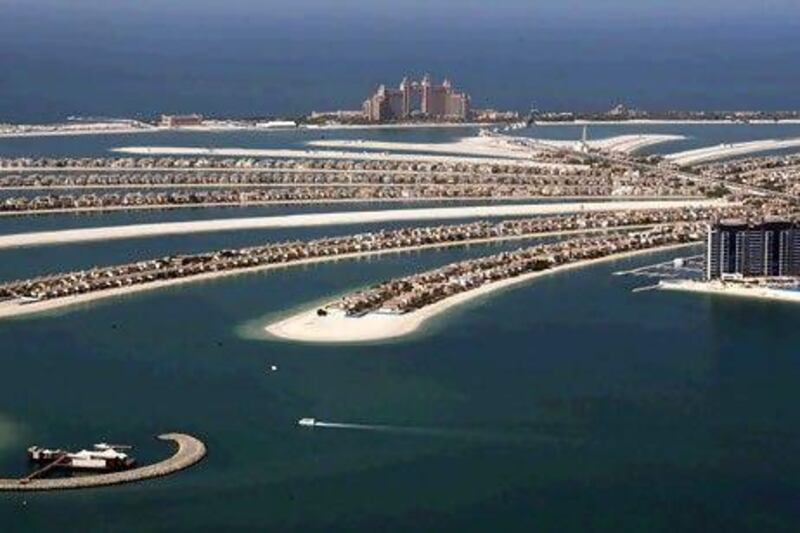There has been a sharp rise in the number of wealthy Iranians buying luxury homes in Dubai recently as increasing international sanctions bite in their home country.
"We have probably done more deals with Iranian clients in the last six months than we've ever done," said Myles Bush, the managing director of Powerhouse Properties, which specialises in high-end homes.
His company has handled four sales to Iranians in Emirates Hill and two on Palm Jumeirah in recent weeks, he said.
"These are the areas they want," he said.
The number of enquiries from Iranians has increased 25 per cent this month from the same month a year earlier, said Mark Towers,the managing director of Edwards and Towers, an estate agency which focuses on property priced at more than Dh15 million (US$4m). "In the last three months we have seen more and more Iranians" looking for property, Mr Towers said. "We didn't see that a whole lot in the early part of 2011."
Edwards and Towers has sold five properties on the Palm Jumeirah to Iranians in recent weeks, he said. In response, the agency is rethinking its marketing strategies and looking to increase the number of Farsi speakers to address the growing interest from Iran, Mr Towers said.
Many of the Iranian buyers are looking for a safe place to invest their money, property executives say. They have been joined by an increasing number of buyers from other regional hot spots, including Syria and Egypt.
Iranians are typically looking for a second or third home, the property executives say
"They are spending money on homes to live in and then at the same time they are buying a string of investment properties," Mr Bush said.
Iranians once played a key role in the Dubai market. In 2008 they were the fourth-largest group of international buyers in Dubai, accounting for 5 per cent of sales, trailing only India, the UK and Pakistan, according to data tracked by Reidin.
"Up until 2008 Iranian purchases were a major driving force in the residential market in Dubai," said Craig Plumb, the head of research of Jones Lang LaSalle, a property consultancy. Many of the Iranian buyers were lured by the possibility of a long-term residency visas.
"Not only were they buying a lot, they were buying huge chunks [of property]," said Tom Bunker, an investment sales consultant with Better Homes, an estate agency. "When the visa option went away, that all dried up."
Any increase in activity from Iranian buyers is affected by changes in the political situation in the region - and within Iran.
"It could be minimised if the Iranian government imposes currency controls," Mr Bunker said.
In a presentation to the media earlier this week, Jones Lang LaSalle noted a military confrontation would directly impact the UAE's property market and harm the country's status as a "haven".





